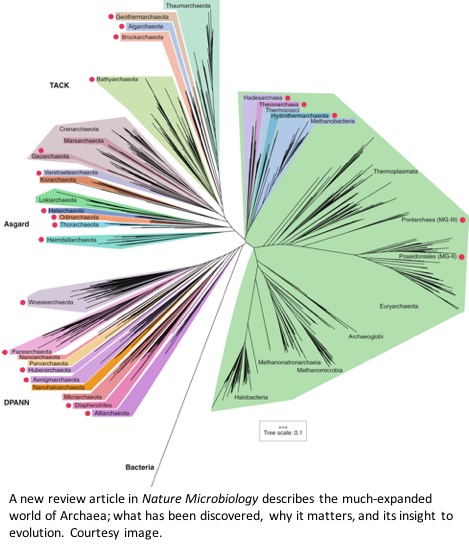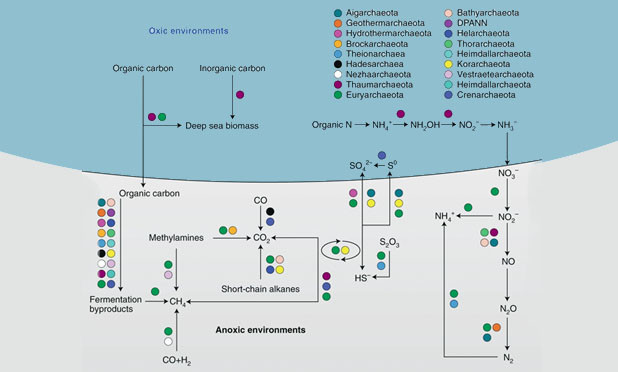 Archaea are quite possibly the most abundant and diverse life on planet, but why haven’t you heard about them? The little-known world of archaea gets a big spot light with a new review in Nature Microbiology, released this week by lead author, Dr. Brett Baker, assistant professor at the University of Texas Marine Science Institute. Archaea are small single-celled microbes that, up until recently, little was known about how many different types there are and how they are involved in ecological processes. New laboratory techniques that are able to look at their DNA, have unlocked a treasure trove of information about these organisms.
Archaea are quite possibly the most abundant and diverse life on planet, but why haven’t you heard about them? The little-known world of archaea gets a big spot light with a new review in Nature Microbiology, released this week by lead author, Dr. Brett Baker, assistant professor at the University of Texas Marine Science Institute. Archaea are small single-celled microbes that, up until recently, little was known about how many different types there are and how they are involved in ecological processes. New laboratory techniques that are able to look at their DNA, have unlocked a treasure trove of information about these organisms.
In the review article, the authors review how this information explosion came about and what impacts it has on how we understand biology and our own evolution. Archaea are difficult to grow in the lab, but new technologies that allow scientists to read the genomes of uncultured Archaea are now available. This new-found ability to understand Archaea is important because they are among the most predominant organisms on the planet and are found in almost every environment, even the most extreme ones. In the review, authors also discuss the metabolic capabilities of Archaea and how this new information will dramatically increase our understanding of how the world works, including global nutrient cycles. The expanded world of Archaea has also shaped how we understand the tree of life and evolution.
“Our accelerating ability to obtain genomes and an ever-advancing toolkit for tracking activity of natural communities will continue to enlighten archaeal ecology and evolution,” cited the review. “Given how much our view has advanced in the last few years, there are certainly new frontiers to be charted among new branches in the Archaea.”
Co-authors include Valerie De Anda, Kiley W. Seitz, and Nina Dombrowski from the University of Texas Marine Science Institute; Alyson E. Santoro from the University of California, Santa Barbara; and Karen Lloyd from University of Tennessee, Knoxville.
This review was supported by the National Science Foundation and the Simons Foundation.









